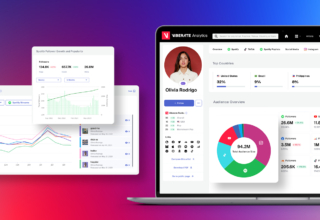
In today’s data-driven business environment, the importance of data security and regulatory compliance cannot be overstated. Organizations across industries must navigate an increasingly complex regulatory landscape while protecting sensitive data from cyber threats. Microsoft Dynamics 365 (D365), as a comprehensive enterprise resource planning (ERP) and customer relationship management (CRM) solution, offers robust security and compliance features. However, realizing the full potential of these features often requires the expertise of microsoft dynamics support partners.
These partners play a pivotal role in aligning the capabilities of Dynamics 365 with the specific data security and compliance needs of organizations. From initial planning to post-implementation support, their involvement ensures that security protocols are embedded in every phase of deployment.
Table of Contents
Understanding the Security and Compliance Landscape
Before diving into the partner’s role, it is essential to understand the twin challenges of data security and compliance:
- Data Security: Refers to protecting digital information from unauthorized access, corruption, or theft throughout its lifecycle. It encompasses measures such as encryption, access control, identity management, and threat detection.
- Regulatory Compliance: Involves adhering to laws, regulations, guidelines, and specifications relevant to a business’s operations. Examples include GDPR (EU), HIPAA (U.S. healthcare), and SOC 2 (cloud service providers).
Navigating this landscape requires technical expertise, industry knowledge, and a strategic implementation plan — all of which are provided by experienced Microsoft D365 implementation partners.
Why Data Security and Compliance Matter in D365 Projects
Dynamics 365 is a cloud-based platform that integrates a range of business applications, including finance, supply chain, human resources, and customer service. This centralized system often handles large volumes of sensitive information — making it a prime target for cyberattacks and regulatory scrutiny.
Failing to secure data or comply with regulations can lead to:
- Financial penalties and legal consequences
- Loss of customer trust and reputation
- Operational disruptions and data breaches
Therefore, organizations must treat data security and compliance as foundational elements of any D365 implementation — not just optional add-ons.
The Strategic Role of Microsoft D365 Implementation Partners
1. Conducting Security and Compliance Assessments
One of the first steps undertaken by Microsoft D365 implementation partners is a comprehensive assessment of the organization’s current security posture and compliance obligations. This includes:
- Identifying the types of data processed and stored
- Mapping data flows across the organization
- Highlighting potential vulnerabilities or gaps
- Determining which local, national, or industry-specific regulations apply
This evaluation forms the basis for a tailored D365 implementation strategy that embeds security and compliance from the outset.
2. Customizing Role-Based Access Controls (RBAC)
A key component of data security is ensuring that employees access only the information necessary for their role. Microsoft D365 offers robust RBAC capabilities, but configuring these settings correctly requires deep platform expertise.
Microsoft D365 implementation partners:
- Define user roles and responsibilities
- Set up appropriate permission levels
- Regularly review and adjust access based on evolving organizational needs
This not only limits internal data exposure but also reduces the risk of accidental or malicious data breaches.
3. Ensuring Secure Data Migration
Data migration is one of the riskiest phases in any ERP implementation. Transferring sensitive data from legacy systems to the cloud can expose it to interception or loss if not handled properly.
Implementation partners safeguard the process by:
- Encrypting data during transit and at rest
- Verifying data integrity post-migration
- Using secure API connections and Microsoft-certified tools
- Conducting thorough testing and validation
Their involvement ensures that the transition to Dynamics 365 is both seamless and secure.
4. Implementing Compliance-Ready Features
Microsoft Dynamics 365 includes tools designed to support compliance with major regulations. For instance:
- GDPR: Features like data subject request management, consent tracking, and data minimization.
- HIPAA: Support for auditing, access controls, and secure handling of personal health information.
- SOX and IFRS: Audit trails and financial reporting features.
However, these tools need to be activated, configured, and aligned with company policies. This is where microsoft dynamics support partners prove invaluable. They not only activate the necessary features but also align them with existing governance frameworks.
5. Configuring Audit Trails and Monitoring
Regulatory standards often require proof of who accessed what data, when, and for what purpose. D365 includes audit logging and activity monitoring features — but these must be properly configured to be effective.
Implementation partners:
- Set up detailed audit trails
- Configure real-time alerts for unusual activities
- Integrate logs with SIEM (Security Information and Event Management) solutions
- Train internal teams on log review procedures
This level of monitoring helps organizations detect and respond to suspicious activity promptly.
6. Building a Data Governance Framework
Beyond technical configurations, implementation partners assist in establishing data governance frameworks that define:
- Data ownership and classification
- Policies for data retention and deletion
- Procedures for incident response and breach reporting
- Training protocols for end-users
By doing so, Microsoft D365 implementation partners help embed security and compliance into the organization’s culture and processes.
7. Leveraging Microsoft’s Compliance Offerings
Microsoft invests heavily in security and compliance certifications across its cloud infrastructure. This includes ISO 27001, SOC 1/2/3, FedRAMP, and more.
Implementation partners help businesses:
- Understand how Microsoft’s certifications align with their own compliance requirements
- Leverage Microsoft Compliance Manager and Secure Score
- Stay up to date on changes in the Microsoft compliance ecosystem
This ensures that organizations can confidently demonstrate due diligence in third-party audits.
8. Training and Ongoing Support
No system is secure if the end-users do not follow best practices. Implementation partners play a critical role in:
- Training staff on data handling procedures
- Conducting security awareness sessions
- Providing post-deployment support to address emerging threats and regulations
By creating a human firewall, partners reduce the risk of insider threats and accidental violations.
Real-World Impact: Case Study Insights
Consider a healthcare organization implementing D365 to manage patient information, billing, and scheduling. Partnering with a certified Microsoft D365 implementation provider allowed them to:
- Comply with HIPAA and local privacy laws
- Securely migrate millions of records from on-premises systems
- Restrict access based on clinical vs. administrative roles
- Configure patient consent workflows
- Maintain detailed logs for compliance audits
Without the partner’s intervention, these goals would have been significantly harder to achieve — and the risk of penalties much higher.
Conclusion
Security and compliance are no longer optional considerations in ERP and CRM implementations — they are mission-critical. Microsoft Dynamics 365 provides powerful tools to meet these requirements, but successful execution hinges on expert guidance.
Microsoft D365 implementation partners serve as the bridge between technology and regulatory responsibility. They assess risks, customize security settings, facilitate compliant deployments, and build long-term governance frameworks. By partnering with these experts, businesses can not only avoid legal pitfalls but also build trust with their customers, stakeholders, and regulators.
In an age where data is both a critical asset and a major vulnerability, the role of D365 implementation partners in securing that data and ensuring compliance cannot be overstated.















